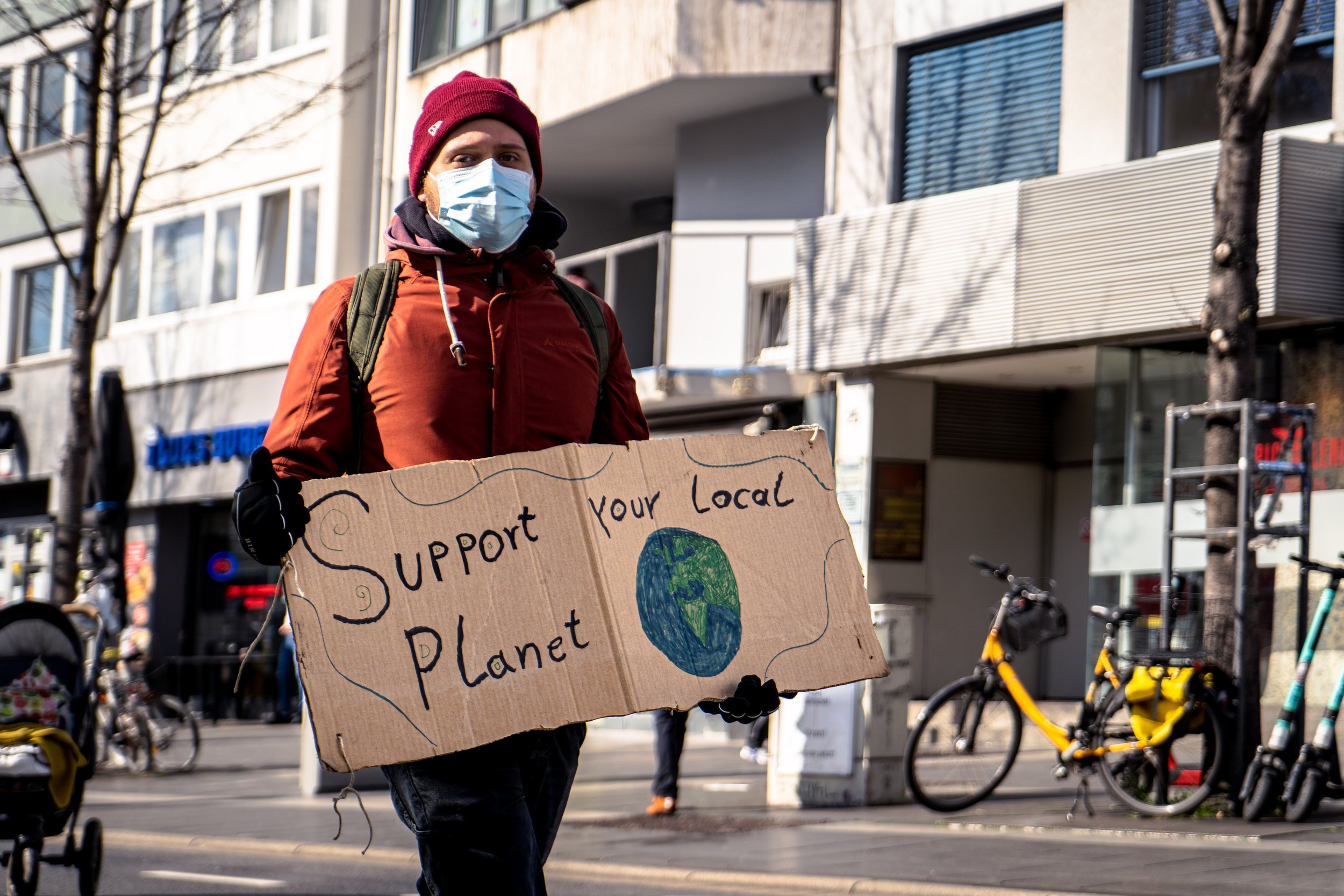Standing Against the “Attack on Nature”
Standing Against the “Attack on Nature”
25 October 2022
At a recent Conservative Party conference held beginning of October in Birmingham, former UK Prime Minister Liz Truss was heckled by Greenpeace activists with a sign saying, ‘Who voted for this?’, referring to her recent anti-environmental policy proposals. These include having investment zones without environmental restrictions, scrapping 570 EU environmental laws, and discontinuing plans to help farmers with environmental conservation. Greenpeace UK states that many of Truss’s current proposals contradict the policies laid out in the 2019 conservative party manifesto for which people voted them into power. In her speech, Truss stated that she had three priorities for the UK: growth, growth, and growth. She claimed that there is a divide amongst those who want economic growth as she does, and those who are concerned with environmental issues, who she calls ‘The Anti-Growth Coalition’. As a new cabinet is being formed, we look at what Rishi Sunak’s government is taking over.
Investment Zones
As part of her growth plan, Truss was preparing to implement 38 investment zones across the country. They would have been areas with low tax and less red tape to encourage business growth. Unfortunately, less red tape includes avoidance of environmental regulation. In her new growth plan in the Conservative Party Autumn Statement, the concept of ‘reducing the burden of environmental assessments’ is mentioned multiple times. There were also fears that these zones would be placed in environmentally protected areas, national parks, and sites of scientific interest. This would contradict the 2019 Conservative Party Manifesto which stated that the UK will have the most ambitious environmental program globally, and that the Conservatives would designate new areas as national parks or Areas of Outstanding Beauty.
Alongside criticism surrounding the environmental concerns, there are doubts about the economic effectiveness of the plan. Some claim that this technique has been tried before and it did not previously boost growth. It may also have social costs, since these zones could be built without local consent and without affordable housing nearby.
Removing 570 EU Laws
There has also been an announcement for the removal of 570 EU laws regarding environmental protection, which are laws inherited from the EU. These 570 laws cover issues such as water quality, air pollution, sewage contamination, pesticide use, as well as the protection of certain areas of nature. Previous incidents of increased pesticide use had a negative effect on biodiversity, particularly bee populations, which is causing particular concern amongst conservation groups.
Since Brexit, the UK can now make its own environmental policies, but new laws could be weaker in terms of environmental protection, especially given the speed at which they would have to be re-written to replace the current laws. Scrapping the EU laws also contradicts the Conservative Party Manifesto which states that there would be more protection for animal welfare and agriculture as well as the environment more widely.
Farming Policy
The Conservative Party Manifesto also stated that it would move away from the Common Agricultural Policy (CAP), which was seen as a positive opportunity from Brexit. This would mean that the UK is able to avoid farming subsidies that can have an adverse effect on the environment. The new UK policy called The Environmental Land Management Scheme (ELMs) would have provided financial support for farmers to undertake projects such as creating forests and ponds, which would improve biodiversity and reduce carbon in the atmosphere, rather than only paying farmers for food production.
However, at the recent Conservative Party Conference, Mark Spencer, the DEFRA minister said that they would not rule out area based payments, which would be similar to CAP and based on how much land farmers own . This is because the cost-of-living crisis has put a strain on extra funding that would have been used to pay farmers for non-food production activities. Not only is this bad news environmentally, it is also unfair on farmers who had started preparing their land for projects that would have been supported by ELMs.
UK Groups are taking a stand
Many conservation groups such as the RSPB, The National Trust and The Campaign to Protect Rural England have made a stand against these new policies, many of whom have millions of members. The RSPB stated that these policies were an “attack on nature”, and The National Trust’s director general stated that the government was headed in the wrong direction, and that environmental protection should not be viewed as a burden. Other sectors of society are also taking positions against these policies, including TV presenter Steve Backshall, and The Church of England.
What can you do?
With political change on the horizon as a new Prime Minister takes office, an opportunity to form the direction in which they go arises. If you want to express disagreement with the above policies, use this template to write a letter to your local MP. It is taxpayers’ money that the government would use to fund these policies, and remember that in our democracy, the politicians’ job is to serve what the people ask for.
Find out who your MP is here: https://www.theyworkforyou.com/
Here is an easy way to write to your MP: https://www.writetothem.com/
We at ESGmark® believe that economic growth and environmental protection are not mutually exclusive. In fact, the advancement of environmentally protective and enhancing technologies could, and arguably should be at the forefront of our country's growth agenda. We strive to help you understand how national and international events affect the environment, our global net zero aspirations, and your daily life. Read our explainer on why green energy prices are rising alongisde fossil fuels’, and about what the cost of living crisis’ mitigation means for Net Zero in the UK.

